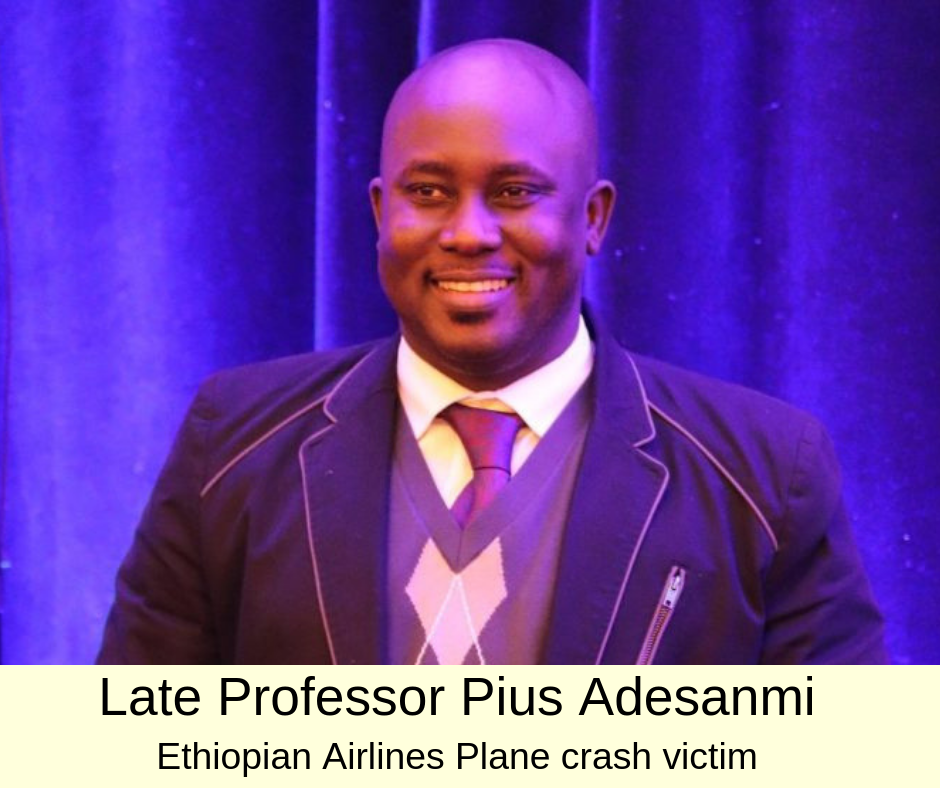The flight route from Addis Ababa, Ethiopia’s capital, to Nairobi, Kenya, is sometimes referred to as a “U.N. shuttle” because of how often United Nations staff members take it.

On Sunday, when Ethiopian Airlines Flight 302 plummeted to the ground shortly after takeoff, killing more than 150 people, the plane had a particularly high concentration of United Nations employees: At least 22 staff members died in the crash, a United Nations official said on Monday.
The airline said the flight had passengers from at least 30 countries, some of whom were aid workers for other humanitarian organizations.
The dead included at least 32 Kenyans; 18 Canadians; nine each from Ethiopia and France; eight each from the United States, China and Italy; and seven from Britain, according to the airline, officials and news accounts.
The World Food Program of the United Nations said seven of its employees died. Six employees from the United Nations office in Nairobi were killed, the organization said, and two from the International Telecommunications Union also died.
The United Nations High Commissioner for Refugees in Geneva said three of the agency’s staff died.

Addis Ababa and Nairobi are home to United Nations offices. But the flight between the cities may have been carrying a particularly high number of United Nations workers because it was the day before a session of the United Nations Environment Assembly, described as the world’s highest-level decision-making body on the environment.
The event, which starts on Monday, brings together representatives from United Nations member states to address environmental problems.

Pius Adesanmi, a professor with the Institute of African Studies at Carleton University in Ottawa, was among the victims from Canada, the university confirmed.
Professor Adesanmi, who was also associated with the university’s English department, was a prominent public intellectual in Nigeria.

In 2010 he was awarded the Penguin Prize for African writing in the nonfiction category for a manuscript that was published the following year in the book “You’re Not a Country, Africa.”
“Pius was a towering figure in African and post-colonial scholarship and his sudden loss is a tragedy,” Benoit-Antoine Bacon, president and vice chancellor of the university, said in a statement.

Professor Adesanmi, who held both Canadian and Nigerian citizenship, was a prominent columnist on PREMIUM TIMES and other Nigerian media.
Before Sunday’s flight, he posted on Facebook a photo of himself holding his Canadian passport, along with the text of Psalm 139:9-10.
“If I take the wings of the morning and dwell in the uttermost parts of the sea,” the post read, “even there your hand shall lead me, and your right hand shall hold me.”
His death was confirmed by Sahara Reporters which said it spoke to three of his family members, a close friend and a Canadian official.
Mr Adesanmi was also a columnist for Sahara Reporters.
Carleton University, where Mr Adesanmi taught, also confirmed his death.
“The Carleton community is shocked and saddened to learn of the death of Prof. Pius Adesanmi, who was among the 18 Canadians killed in today’s crash of an Ethiopian Airlines jet at the Addis Ababa airport,” the university said in a statement.
“Global Affairs Canada has confirmed that Adesanmi is among the victims.
“Pius was a towering figure in African and post-colonial scholarship and his sudden loss is a tragedy,” said Benoit-Antoine Bacon, president and vice-chancellor. “Our thoughts and prayers are with his family and all those who knew and loved him, and with everyone who suffered loss in the tragic crash in Ethiopia.
“The contributions of Pius Adesanmi to Carleton are immeasurable,” said Pauline Rankin, dean of the Faculty of Arts and Social Sciences. “He worked tirelessly to build the Institute of African Studies, to share his boundless passion for African literature and to connect with and support students.

He was a scholar and teacher of the highest calibre who leaves a deep imprint on Carleton.
“A further tribute about Adesanmi’s leadership and many contributions to the Carleton community will be shared as soon as possible.”
The airline management had earlier released the flight manifest showing the countries of origin of the 149 passengers on board.
One Nigerian was confirmed to be among the passengers. It is, however, believed that Mr Adesanmi travelled with his Canadian passport, an indication Nigeria lost another citizen in the crash.
Other nationals in the plane included 32 Kenyans, 18 Canadians, nine Ethiopians, eight Italians, eight Chinese, eight Americans, seven Britons, seven French citizens, six Egyptians, five Dutch citizens, four Indians and four people from Slovakia.

According to Ethiopian Airlines, the ill-fated aircraft B-737-800MAX with registration number ET- AVJ took off at 08:38 am local time from Addis Ababa Bole International Airport and lost contact at 08:44 am. It was on a scheduled service from Addis Ababa to Nairobi before getting involved in an accident around Bishoftu (Debre Zeit).















